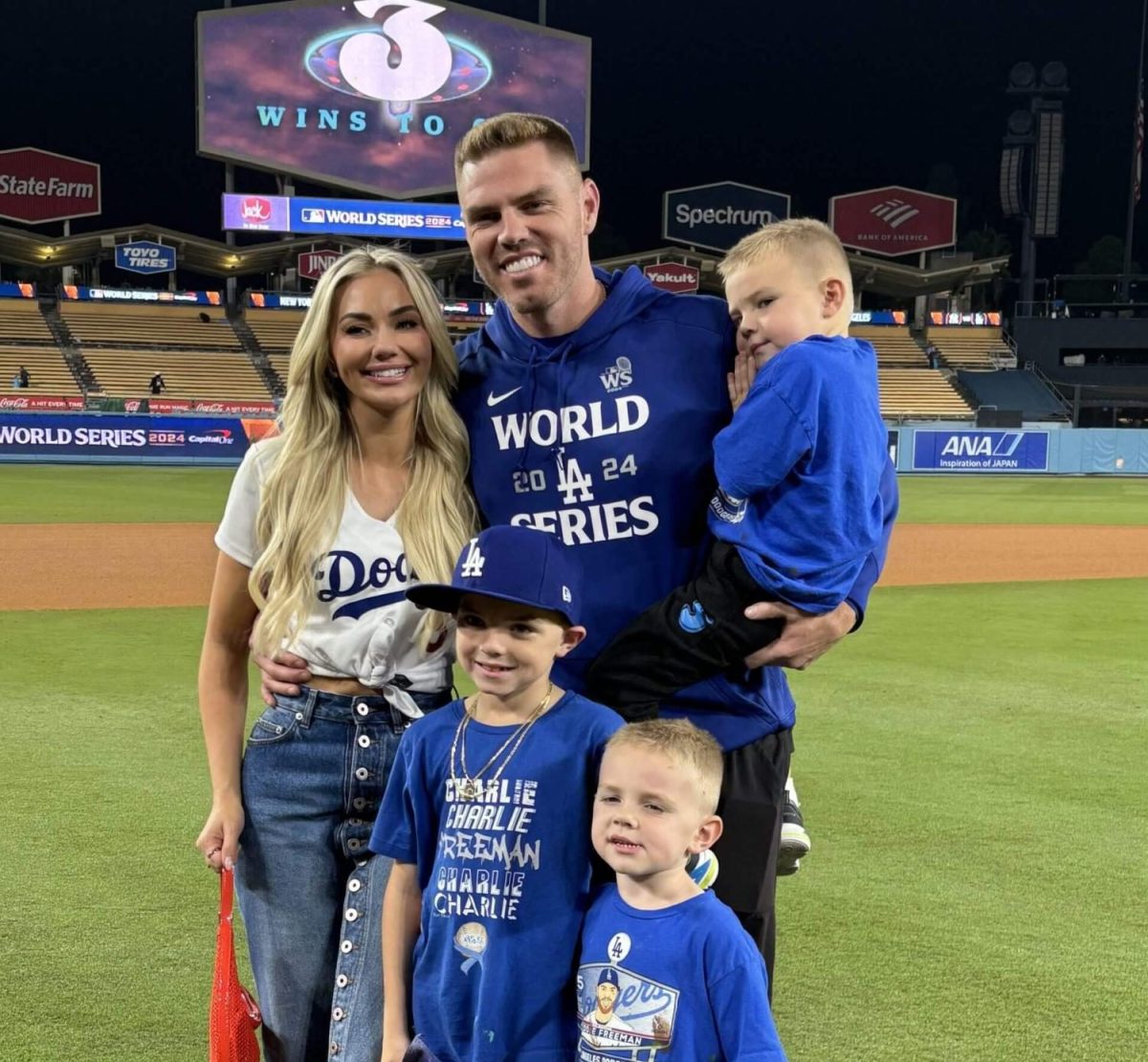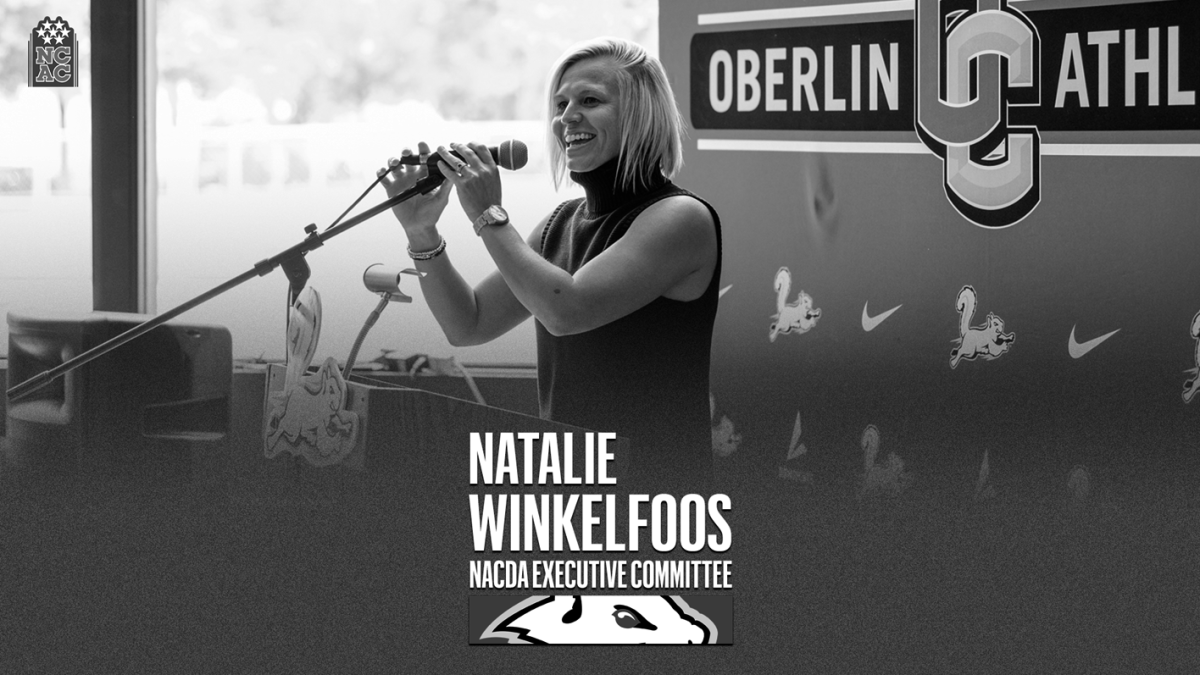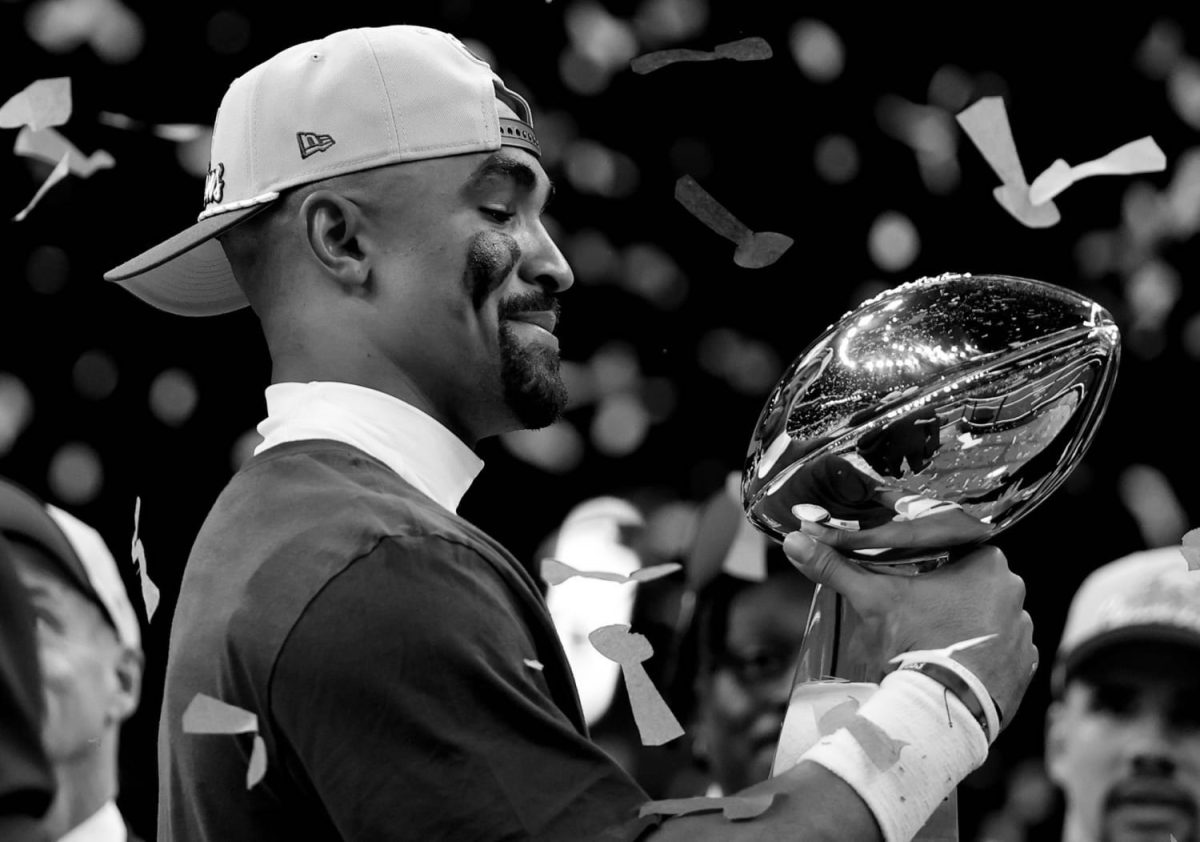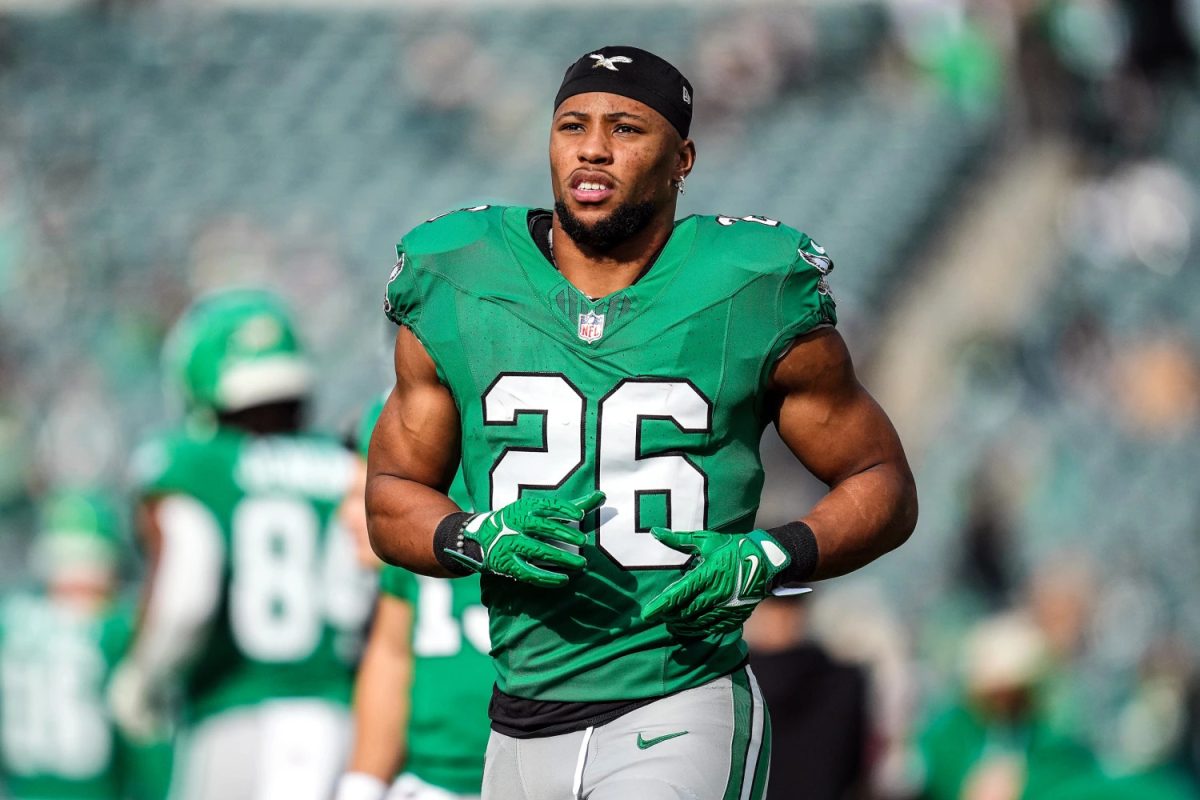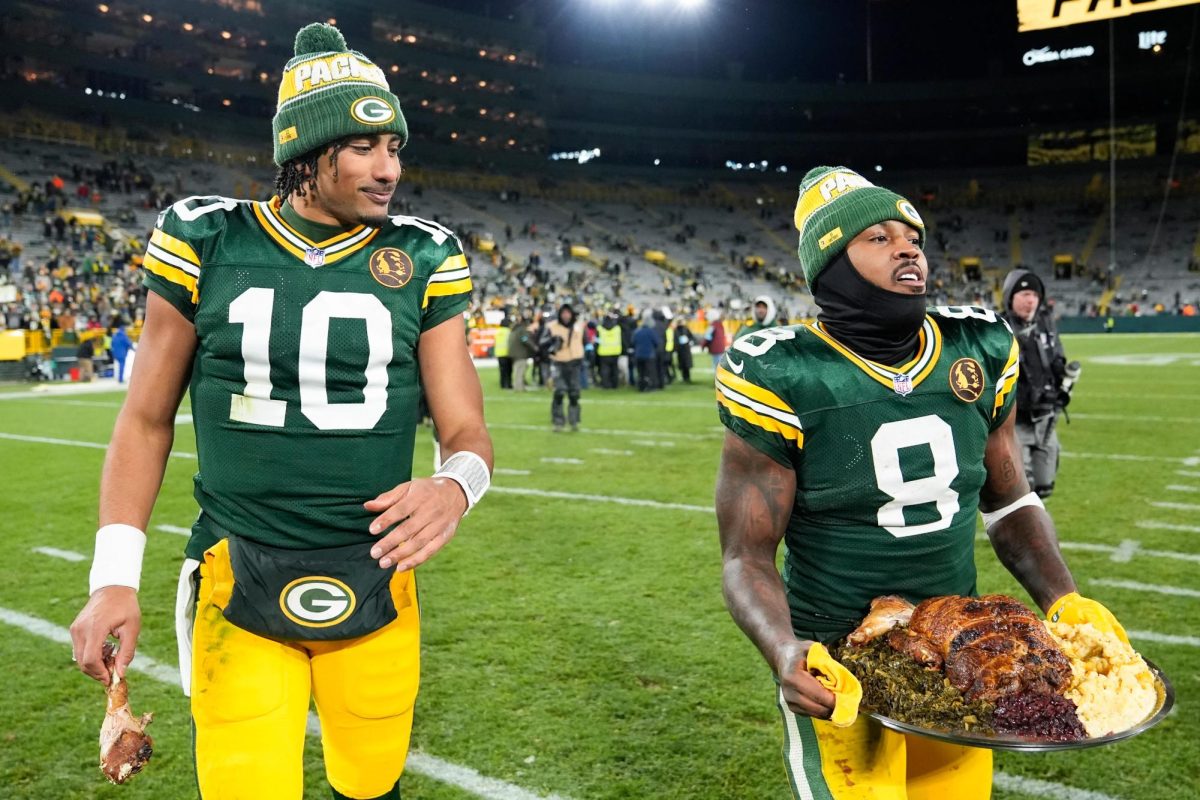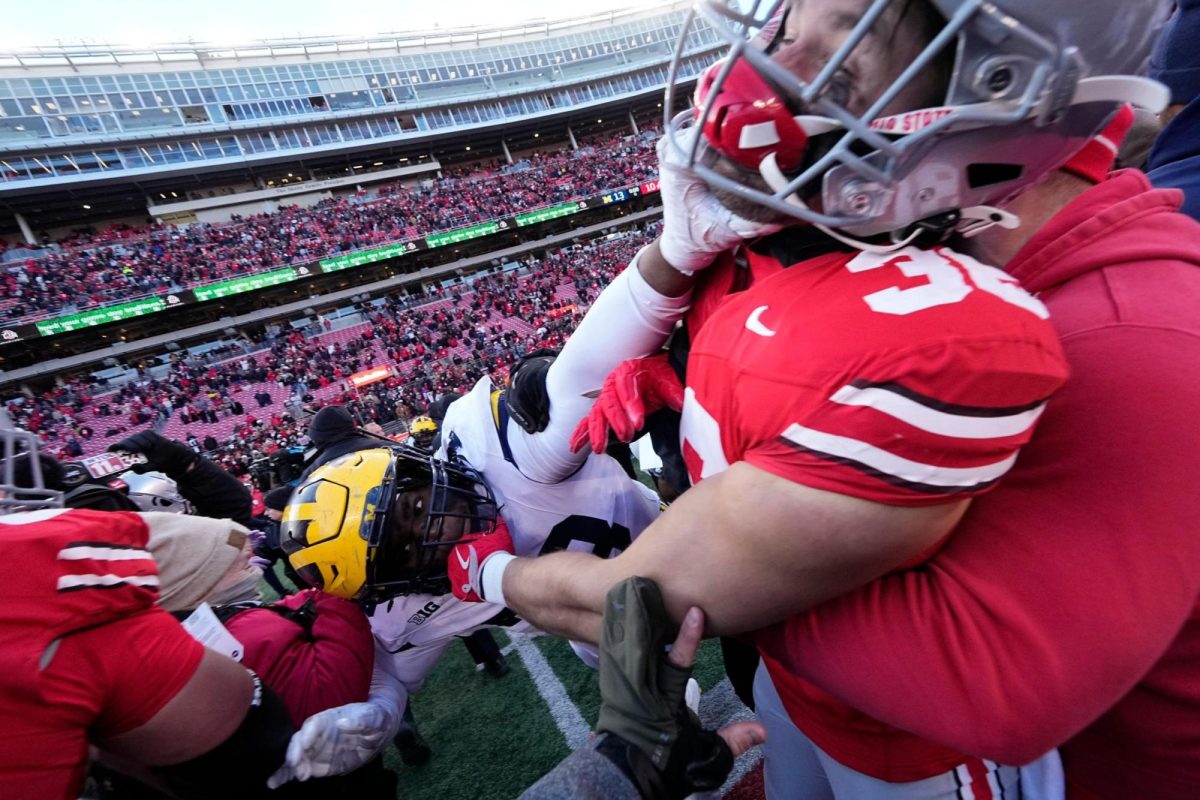Moments after making World Series history, Freddie Freeman felt as if he was floating.
“It felt like nothing. I was just floating,” Freddie Freeman said when asked what it felt like to hit the first walk-off grand slam in World Series history. Freeman’s grand slam emphatically ended game one and gave the Los Angeles Dodgers a 1–0 series lead over the New York Yankees.
“That was one of the best baseball games I’ve ever been a part of,” Dodgers right fielder Mookie Betts said after the thrilling victory. “I’m happy Freddie, after all he has been through the last couple weeks, was the one that did it.”
For Freeman, who is 35 years old and just completed his 13th pro season, the 2024 season was one of a kind. One morning early in July — the dog days of the MLB season — Freeman’s son Max woke up with a limp that rapidly worsened. Hours later, he could no longer walk. He was diagnosed with Guillain-Barré syndrome, a condition where the body’s immune system attacks its nerves.
“No one should have to go through this,” Freeman said in an emotional press conference in August. “I don’t know how many times [my wife] and I said ‘We wish we could switch.’”
Freeman missed eight games in July. He ultimately came back when doctors said Max was going to recover. If not, Freeman seriously considered the prospect of not returning until the spring.
“If Max was never okay, then I probably wouldn’t be here,” Freeman said.
On Sept. 26, the Dodgers’ last home game of the season against the San Diego Padres, Freeman tried to avoid a tag at first base and severely sprained his right ankle days before the playoffs were slated to begin.
Freeman is an eight-time all-star, a three-time Silver Slugger Award winner, and the 2020 National League MVP; on top of all that, he is an iron man. Since signing with the Dodgers in 2022, Freeman has played in 467 out of 486 regular season games and hasn’t missed any playoff games in that span.
Playing through the sprain, Freeman’s performance in the divisional and championship series was limited. He hit .219 without tallying a single extra base hit. He was even forced to miss a game in the divisional series and two more games in the championship series.
Despite that, Freeman was not going to miss the World Series. His track record spoke for itself. An ankle sprain seems like a small bump in the road compared to the difficulties he faced growing up. On the afternoon of June 13, 2000, a 10-year-old Freeman sat in class at Villa Park Elementary in his hometown of El Moderna, CA. At around one in the afternoon, the classroom phone rang and told Freeman he had to go to the office. On his way there, Freeman saw his uncle Mark and older brother Phillip in tears. His mother Rosemary had just lost a long battle with melanoma. Shortly after, in 2002, Freeman almost lost his father as well.
One night, Fred Freeman — Freddie’s father — was experiencing discomfort in his chest. As a precaution, Freeman encouraged his father to go to the hospital. Freeman and his father were sitting in a waiting room when the doctor walked in with the results.
“You’re lucky you came to the hospital tonight,” the doctor said to his father. “Because if you didn’t come in and you went to sleep, you most likely would have died in your sleep.”
Fred Freeman had congestive heart failure.
“Freddie actually saved my life that night,” Fred remarked in a ESPN MLB video on his son taking him to the hospital, “I was this close to being parentless at 12 years old,” Freeman said with his thumb and index finger mere centimeters apart.
Fred changed his lifestyle and made a commitment to eat healthier and be more active. He honored his commitment by joining Freddie at his high school baseball practices. If there was daylight, Fred would be there with a bucket of balls and an L-screen, throwing extra batting practice to Freeman.
With the help of his father, Freeman excelled, hitting .417 his senior season. Fresh out of high school, Freddie was drafted 78th overall by the Atlanta Braves in the second round at just 17 years old. Fred had to sign Freeman’s contract because he was not 18.
After Freeman’s magical moment in game one when the ball soared deep into the Los Angeles night, he touched home and ran to give his father Fred — who was sitting in the front row — a hug.
“He’s been throwing me batting practice since I can remember,” Freeman said in a press conference following game one. “My swing is because of him. My approach is because of him. I am who I am because of him. All the batting practice, all the relentless hours we spent together on a baseball field. We still do it in the offseason together. He still throws me batting practice.”
For a father and son who have endured so much together, baseball has always been the driving force of their relationship. It brings them together in a way nothing else can.
“[My dad] was so nervous going into that [at-bat],” Freeman said when asked about running to greet his father. “I just wanted to share that with him. He’s been through a lot in his life too. To have a moment like that, I just wanted him to be a part of it because it’s mostly his moment. If he didn’t throw me batting practice or if he didn’t love the game of baseball, I wouldn’t be here playing this game. That’s Fred Freeman’s moment right there.”
Following his game one heroics, Freeman homered in the next three games and delivered a clutch 2-out, 2-strike single up the middle to ultimately clinch the series for the Dodgers in game five. Freeman was named the World Series MVP, hitting .300 with four home runs and 12 RBIs.
Freeman’s loved ones have always pulled through for him. His father has battled a heart defect for nearly 25 years and committed himself to healthier habits to be there for Freeman. His son Max fought back from a condition one in 78,000 people get per year to be able to watch his dad perform on the biggest stage. Every game, Freeman plays for his family members who have to fight every single day to stay alive. He also wears a long sleeve shirt under his jersey in every game he plays in remembrance of his mother.
The story of Freddie’s family is one of resilience. He plays for them, through them, and with them; a sprained ankle never had any chance of stopping that.


